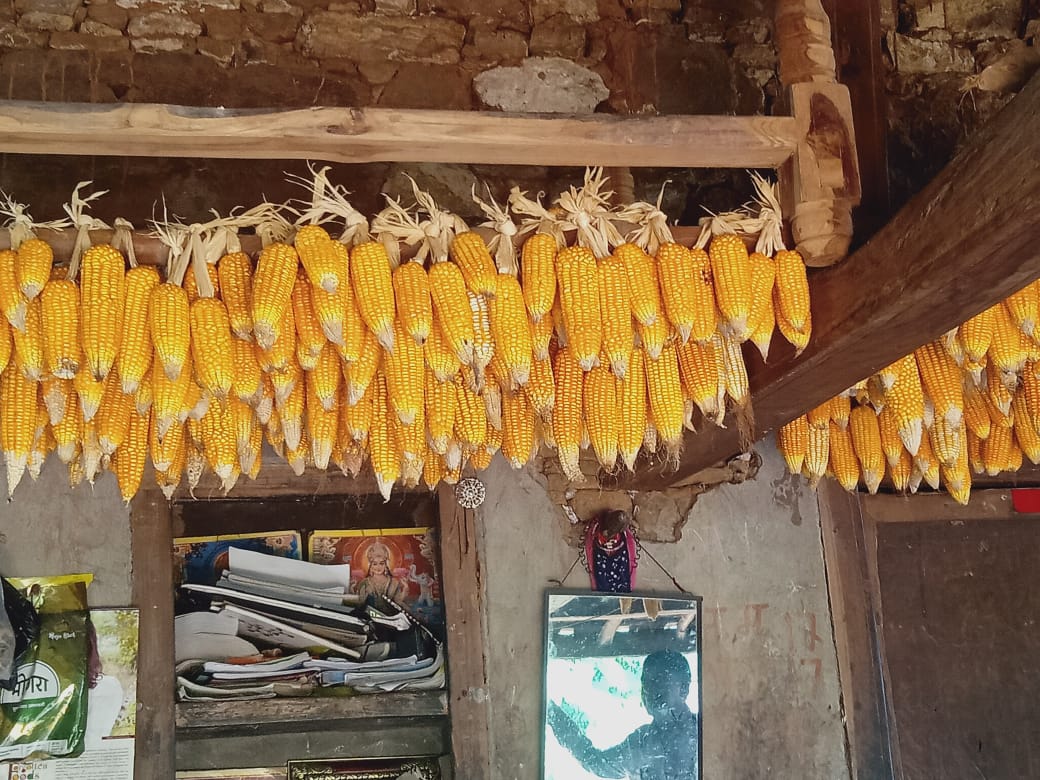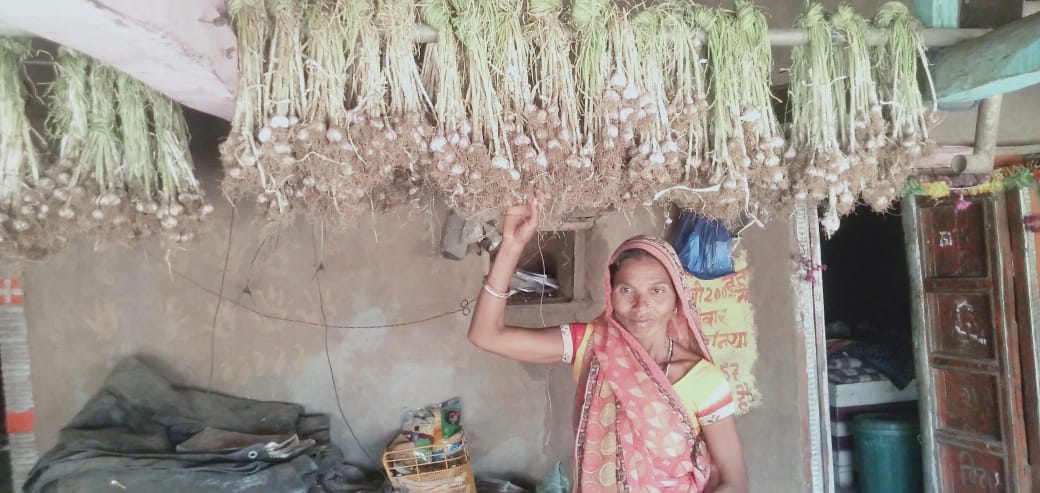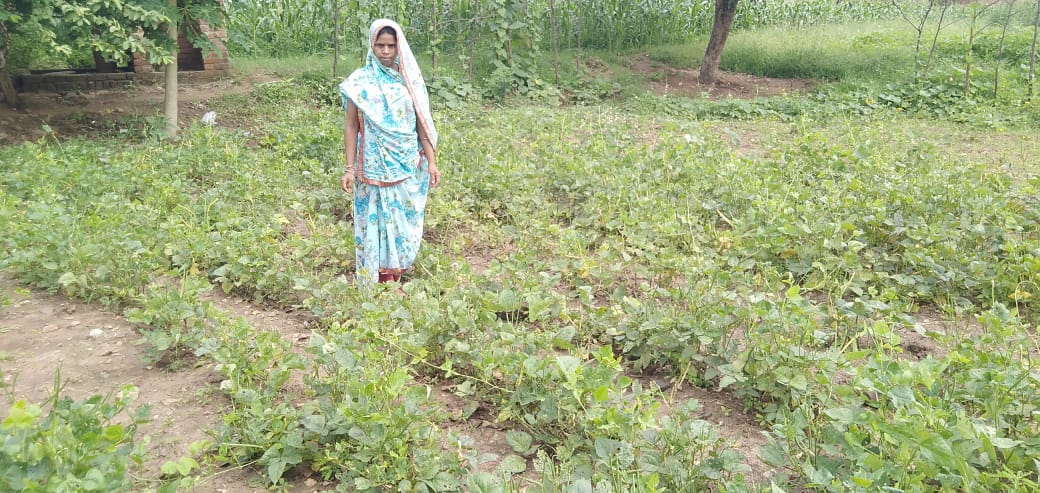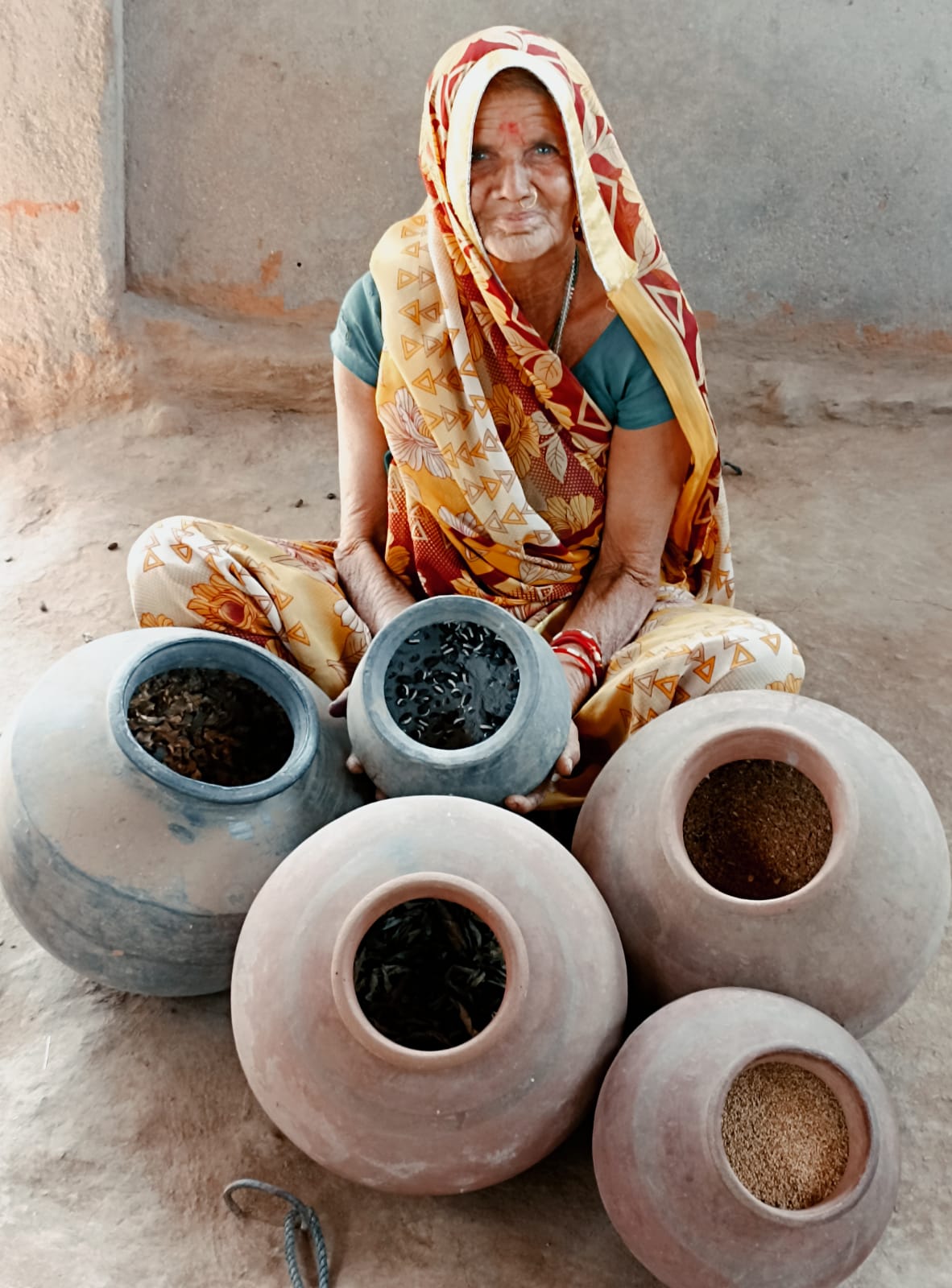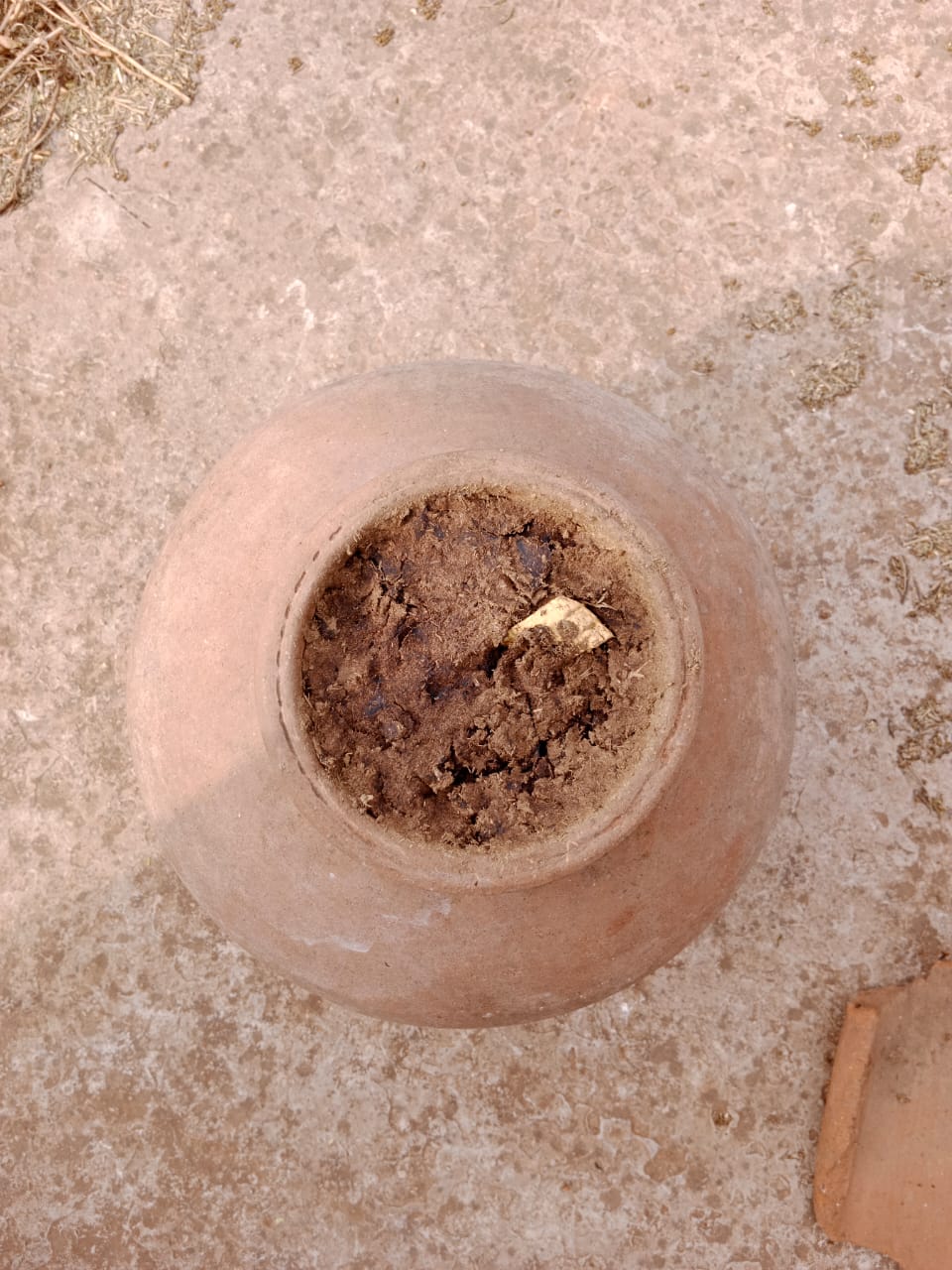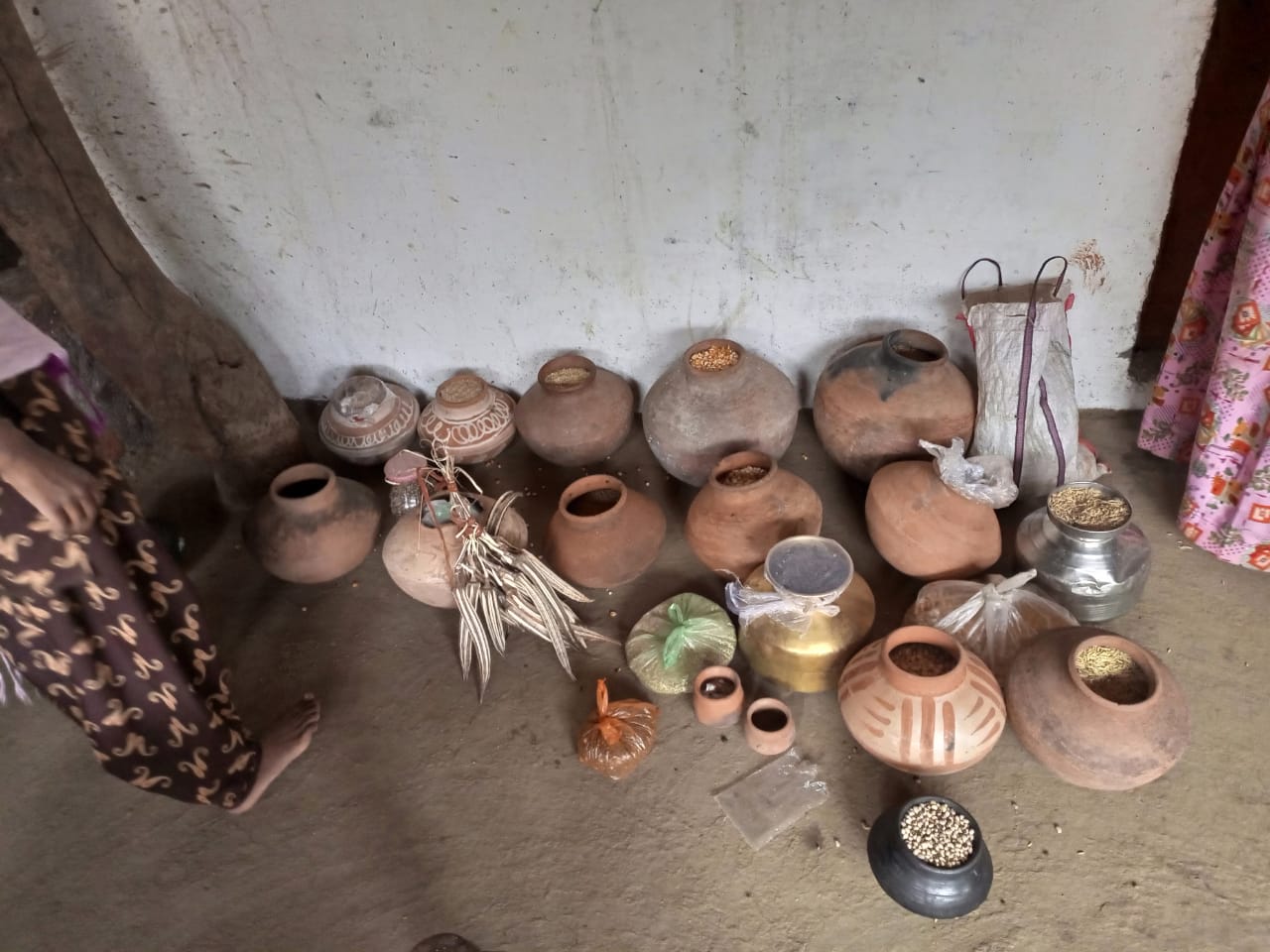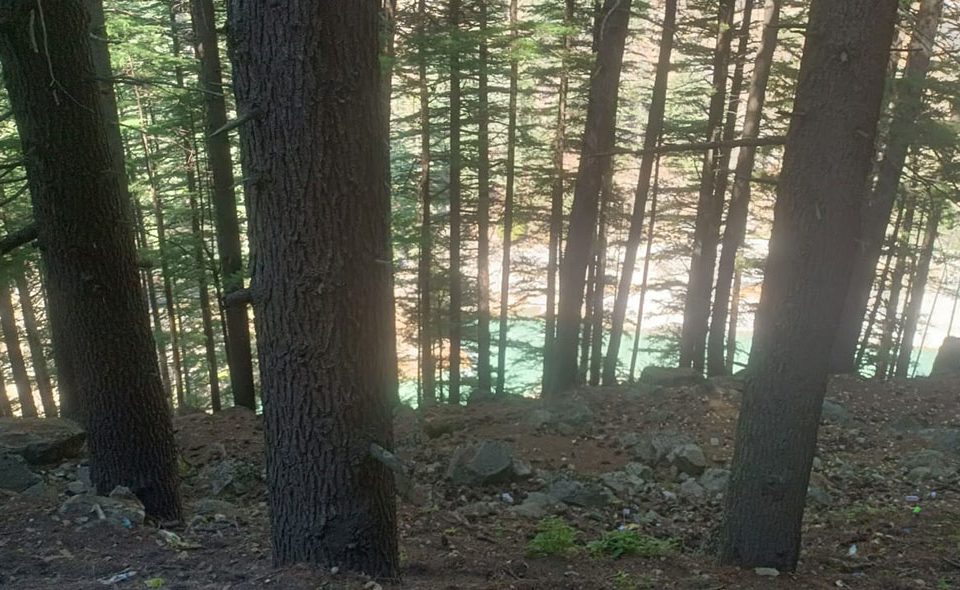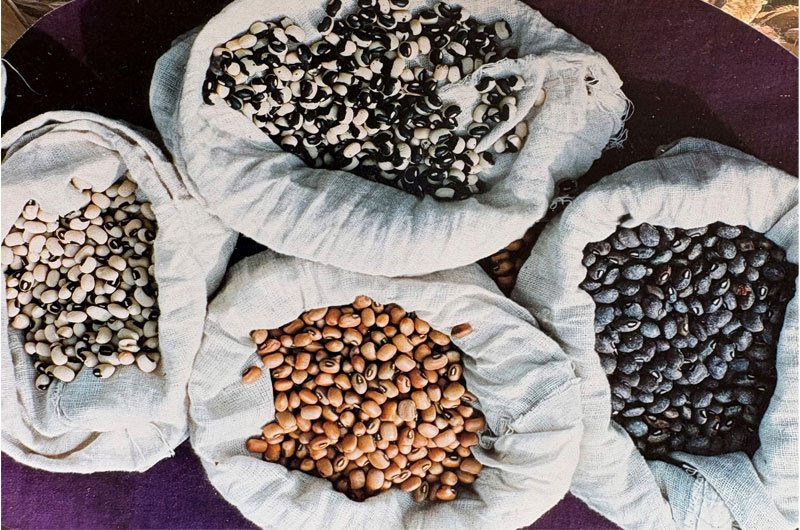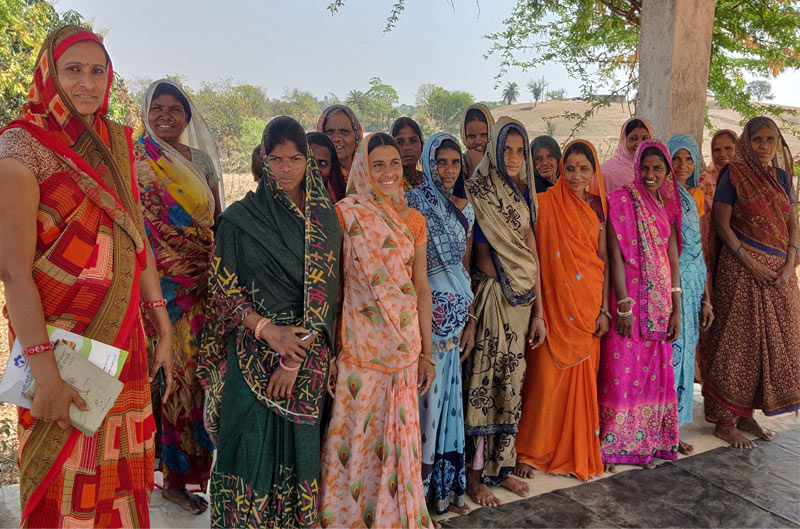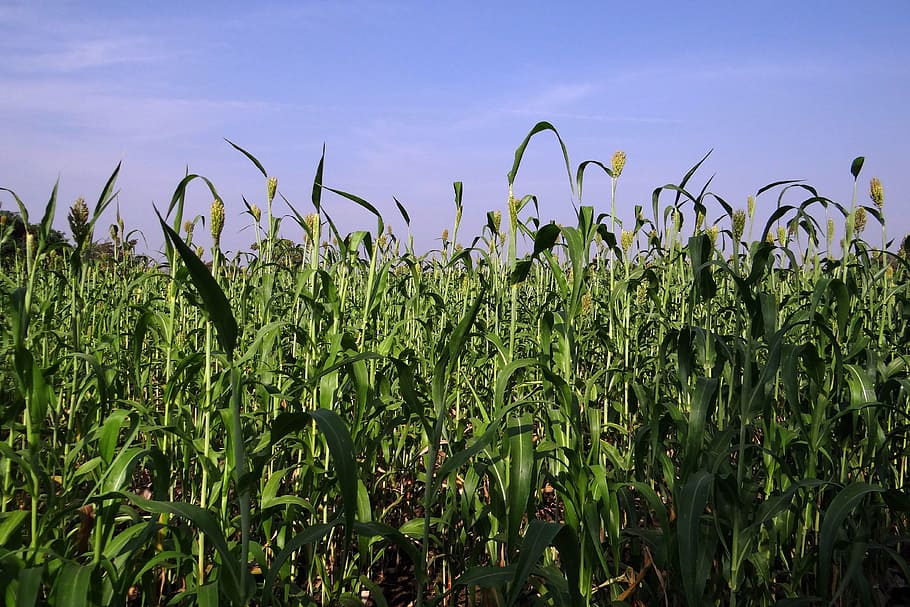
Zaid season is important for soil
May 24, 2022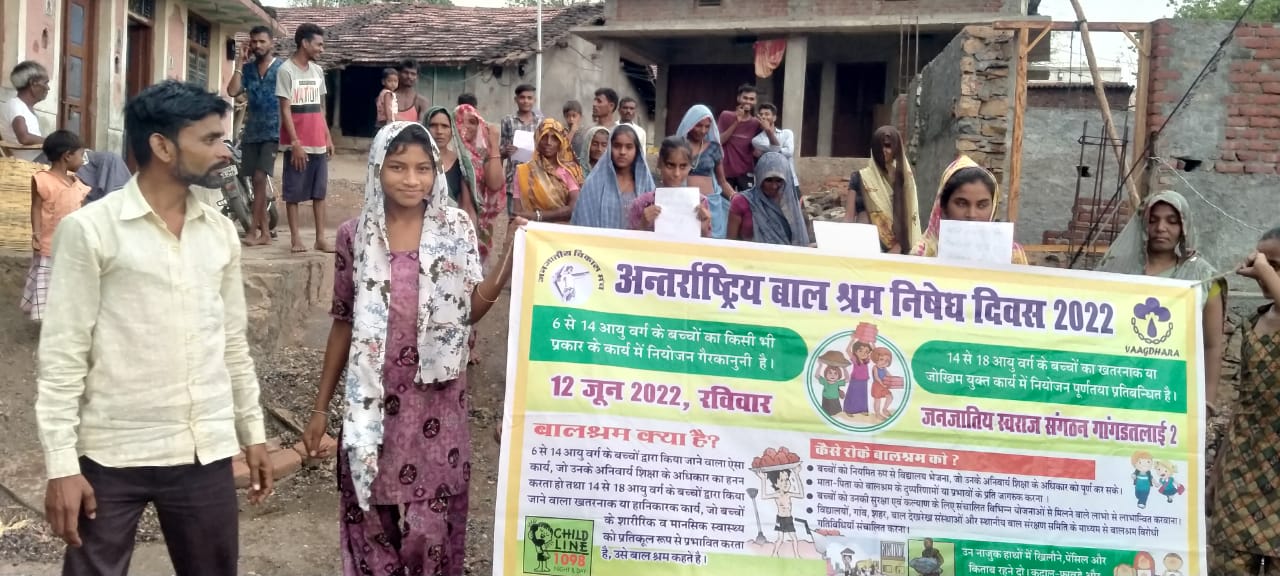
An oath was taken against child labour by fifty thousand people on World Day Against Child Labour
June 12, 2022Green revolution that began in the 1960s had a drastic impact on agriculture in India, focus shifted from biodiversity to high yielding varieties of crops. Such a drastic shift had a great impact on the traditional indigenous seeds; most of them are on the verge of extinction.
While initially the impact was hardly felt, now as climate change and environment degradation is happening, the loss of indigenous seeds is felt. Both farmers and consumers are affected as the indigenous varieties were environment friendly and sustainable in comparison to the high yielding varieties.
Despite the fact that situation is an urgent one and has to be addressed as soon as possible, there hasn’t been any solution yet, however, a group of women residing in Sangela village of Garhi Tehsil, Banswara district have been preserving the traditional varieties and in the process preserving and safeguarding the lost seed biodiversity.
One such woman Kanti Devi who has been preserving seeds for long said, “We women have taken up the task of preserving seeds, what men do, they know nothing regarding seed conservation.” She noted that seed conservation, and sharing has been a part of their culture and tradition. In fact their mothers had taught them the method of seed conservation. “Basically women have a fair idea of where and in what quantity seed has to be preserved.”
While these women had started preserving seeds as a custom, they have now taken it up as a mission for indigenous seed sovereignty ‘Beej Swaraj’. With the direction, guidance and motivation of Vaagdhara Civil society, they are enhancing their knowledge on crop diversity and resistance varieties.
One of the women of the Saksham Samuh, Kukun Devi said, “Earlier we used to grow paddy and maize but now we grow green leafy vegetables like pumpkin, chili, okra, pumpkin, and turmeric among others. Besides, we grow fruits like papaya, mango so that domestic needs are fulfilled.”
Talking about the rainfed cultivation in Banswara district, she said, “Farmers in tribal belt are mostly dependent on paddy, maize, pulses, moong and wheat, but we women aren’t confined to limited cropping, rather we grow multiple crops so that family need is fulfilled.”
Sharing the process of seed selection and preserving them, Devi said, “Seeds are being selected according to the weight, we fill them in a sack and seal it and keep it in granary for the forthcoming season. And when it comes to vegetable seeds, we let the vegetables ripen, then separate the seeds and keep them in store.”
This act of preserving seeds helped them at the time of Covid crisis, while the big farmers struggled for seeds procurement due to limited travel and lockdown; these women groups had surplus seeds to sustain themselves in difficult times.
So, preserving seed is the best way to tackle and deal with the climate change and challenges that have come up recently.
Subscribe to our newsletter!



